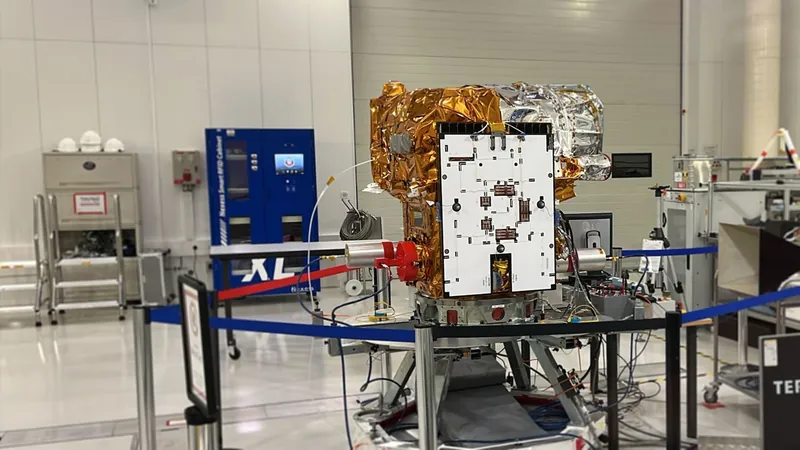
Europe Set to Revolutionize Climate Monitoring with Groundbreaking Carbon Satellite: Microcarb
2025-04-01
Author: Ming
In an ambitious stride towards combating climate change, the French space agency CNES is gearing up to launch Microcarb, Europe’s very first carbon-monitoring satellite. This cutting-edge spacecraft aims to provide crucial atmospheric composition data, paving the way for better understanding of greenhouse gas emissions, specifically carbon dioxide. With its advanced technology, Microcarb will help quantify how much carbon dioxide is released from various sources—both natural and human-made—and how much is absorbed by carbon sinks like forests and oceans.
Microcarb isn't just a solo mission; it's the result of collaborative efforts involving numerous partners, notably EUMETSAT. EUMETSAT is tasked with managing the data services for Microcarb, ensuring proper processing, storage, and distribution of invaluable data products to operational users. This mission is further supported by funds from the European Union, which is backing the development of Microcarb’s ground segment through its Horizon Europe initiative.
Transitioning Toward Enhanced Carbon Monitoring
Microcarb serves as a vital precursor to the European Union’s ambitious Copernicus Anthropogenic Carbon Dioxide Monitoring (CO2M) mission, which will comprise a constellation of three sophisticated satellites designed to deliver rapid and precise measurements of carbon dioxide and methane emissions resulting from human activities. While distinct from the CO2M mission operated by EUMETSAT, Microcarb will provide essential preliminary observations that will enhance the capabilities of future satellite missions focused on carbon monitoring.
Phil Evans, Director-General of EUMETSAT, emphasized the significance of Microcarb, stating, “This project marks Europe’s inaugural move towards a dedicated carbon dioxide monitoring system. It will serve as an independent source of information to evaluate the impact of policies and bolster decarbonization efforts.” The satellite’s capabilities will enable effective differentiation between carbon absorbed by natural processes and that emitted by human actions, playing a critical role in tracking global progress towards the ambitious objectives of the Paris Agreement, which aims to limit global warming.
Additionally, the expertise gained from Microcarb’s commissioning and operational phases will directly inform preparations for the upcoming Copernicus CO2M mission. Together, these initiatives will enhance Europe’s commitment to establishing a comprehensive network of satellites aimed at monitoring greenhouse gases, providing scientists and policymakers with the insights needed to tackle the pressing challenges posed by climate change effectively.
As the launch date nears, all eyes are on Microcarb—and its potential to reshape our understanding of carbon management in the fight against global warming. Stay tuned for developments in this pioneering mission that could change the trajectory of climate action in Europe and beyond!





 Brasil (PT)
Brasil (PT)
 Canada (EN)
Canada (EN)
 Chile (ES)
Chile (ES)
 Česko (CS)
Česko (CS)
 대한민국 (KO)
대한민국 (KO)
 España (ES)
España (ES)
 France (FR)
France (FR)
 Hong Kong (EN)
Hong Kong (EN)
 Italia (IT)
Italia (IT)
 日本 (JA)
日本 (JA)
 Magyarország (HU)
Magyarország (HU)
 Norge (NO)
Norge (NO)
 Polska (PL)
Polska (PL)
 Schweiz (DE)
Schweiz (DE)
 Singapore (EN)
Singapore (EN)
 Sverige (SV)
Sverige (SV)
 Suomi (FI)
Suomi (FI)
 Türkiye (TR)
Türkiye (TR)
 الإمارات العربية المتحدة (AR)
الإمارات العربية المتحدة (AR)